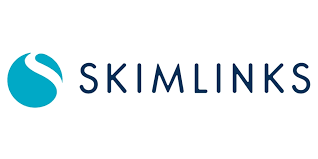
Today, the competition for online traffic is becoming increasingly fierce, and the cost of acquiring traffic is rising. Whether it’s driving traffic through social platforms or advertising, the costs are soaring. Here, we recommend a low-cost, performance-based method to increase conversion sales – affiliate marketing.
Affiliate marketing is a very effective way to boost sales, and its effectiveness has been proven over the years.
This article is mainly targeted at merchants, recommending platforms that promote product sales. If you have a website or social media account and are a content publisher looking to earn money by promoting other people’s products, please check our Online Money-Making Alliance and Affiliate Platform Guide to see which platforms can help you monetize your content and earn commissions. If you are only interested in Affiliate alliances, you can check our Top Affiliate Networks Recommendations.
What is Affiliate Marketing?
First, let’s explain what affiliate marketing is.
Affiliate Marketing, or affiliate marketing, is a digital marketing strategy where merchants (advertisers) join an affiliate marketing network platform and promote their products through content publishers on the platform. After generating conversion sales, the merchants pay a certain percentage of commission to the platform and content publishers.
Affiliate marketing is a performance-based online promotion method, very suitable for independent sellers, who only need to pay commissions for the orders generated by the affiliate sites. In other words, you only pay for completed transactions, which is low-cost and risk-free.
Participants in Affiliate Marketing
There are mainly three roles in affiliate marketing: merchants (advertisers), affiliate marketing platforms, and affiliate members.
- Merchant (Advertiser): These are sellers who join the affiliate marketing platform and add their product links, paying a certain commission fee to the platform and affiliate members based on actual sales results (such as sales volume, registration numbers, etc.).
- Affiliate Marketing Platform: This serves as a bridge connecting advertisers and affiliate members, tracking the conversion of product links through technical means and paying sales commissions to the content publishers who recommend the products, i.e., the affiliate members. Well-known foreign affiliate platforms include ShareASale, CJ, etc.
- Affiliate Member: This refers to content publishers who own their own websites or social accounts and earn commissions by creating content that introduces useful knowledge and products from the affiliate marketing platform to their readers, turning website traffic into revenue and achieving content monetization.
These three roles are interdependent: merchants need to provide quality products, which can be either physical or digital; affiliate marketing platforms provide services and technical support for merchants and affiliate members; and affiliate members publish useful information to help visitors, thereby recommending products to generate sales conversions and earn commissions.
Best Affiliate Marketing Platforms Recommendations

In today’s digital landscape, competition for online traffic is intensifying, with rising costs for generating leads through social platforms and advertising. Here, we introduce a cost-effective and performance-based method to boost conversion sales – Affiliate Marketing.
Affiliate marketing is a highly effective strategy for increasing sales, proven over many years.
This article primarily targets merchants, recommending platforms to enhance product sales. If you have a website or social media account and wish to earn money by promoting others’ products, check out our Comprehensive Guide to Affiliate Programs to discover platforms that can help you monetize your content and earn commissions. For those focused solely on affiliate networks, view our Top Recommended Affiliate Networks.
What is Affiliate Marketing?
Let’s first clarify what affiliate marketing is.
Affiliate Marketing is a digital marketing strategy where merchants (advertisers) join affiliate marketing networks and promote their products through content publishers on the platform. When a sale is made, the merchant pays a commission to the platform and content publishers based on a percentage of the sale.
This performance-based approach means that merchants only pay for actual sales, making it a low-cost, low-risk marketing option.
Participants in Affiliate Marketing
Affiliate marketing involves three main parties: merchants (advertisers), affiliate marketing platforms, and affiliate members.
- Merchants (Advertisers): These are sellers who join affiliate marketing platforms and list their product links, paying commissions based on actual sales performance (like sales volume or registrations).
- Affiliate Marketing Platforms: These serve as a bridge between advertisers and affiliate members, using technology to track product link conversions and manage commission payments to content publishers (affiliate members). Notable platforms include ShareASale and CJ.
- Affiliate Members: These are content publishers with websites or social accounts that create content to inform readers and promote products from affiliate marketing platforms, earning commissions from their efforts.
These three roles work synergistically: merchants must offer quality products, which can be physical or digital; affiliate marketing platforms support merchants and affiliates with services and technology; and affiliate members provide valuable information to visitors, recommending products that generate sales and commissions.
Best Affiliate Marketing Platforms
1. ShareASale

Founded in 2000, ShareASale is a major player in the affiliate marketing arena. They boast advanced technology, streamlined processes, and a large network of high-quality affiliate members, earning accolades from prominent media outlets.
Suitable Merchant/Advertiser Types:
ShareASale is ideal for niche merchants catering to specific consumer segments across various categories, including fashion, home and garden, business, and electronics, making it suitable for small to medium-sized sellers and websites.
Merchant Registration Fees:
A one-time registration fee of $625 is required, along with a $125 minimum deposit that goes directly into your account to pay affiliate commissions.
Transaction Fees:
Transaction fees apply for effective transactions, amounting to 20% of total commissions. For example, if your total commission rate is 10%, the transaction fee for the platform would be 2%. A minimum monthly transaction fee of $35 applies if the amount is below this threshold.
ShareASale has over 241,000 affiliate members promoting products, generating $16 billion in revenue for merchants in 2021, proving to be a highly effective product promotion platform.
2. FlexOffers

FlexOffers is another well-known affiliate marketing platform. It is an award-winning affiliate marketing network that offers comprehensive solutions for advertisers and content publishers, featuring 12,000 advertisers and 75,000 affiliate members.
Suitable Merchant/Advertiser Types:
Like ShareASale, FlexOffers focuses on niche products and supports both physical and digital products.
Merchant Registration Fees:
For U.S. businesses: A one-time initial setup fee of $500, which includes a $100 deposit.
For businesses outside the U.S.: A one-time initial setup fee of $1,000, including a $500 deposit.
Transaction Fees:
FlexOffers offers two different transaction fee structures:
CPS Plan: Transaction fees are 3% of total sales. For instance, if the content publisher generates $100 in sales, and your commission rate is 5%, you would pay the publisher $5, plus an additional $3 (3% of the sale) to FlexOffers. The total amount paid to FlexOffers would be $8, with FlexOffers disbursing $5 to the content publisher.
CPL/CPA Plan: 20% of total commissions. If your plan pays the publisher $5, FlexOffers would charge an additional $1 platform fee (20% of the commission), resulting in a total payment of $6 to FlexOffers, who would then pay the publisher $5.
Note: If your cumulative transaction fees do not reach $25 monthly, FlexOffers will charge a minimum fee of $25 for that month.
1. ShareAsale

Founded in 2000, ShareAsale is a major player in the affiliate marketing field. They offer advanced technology, processes, and management, and have numerous high-quality affiliate members. It is recognized by many well-known media outlets as a top affiliate marketing network.
Ideal Merchant/Advertiser Types:
Perfect for niche merchants catering to specific consumer groups, including fashion, home and garden, business, and electronics. It is especially suitable for small to medium-sized sellers and websites.
Merchant Registration Fees:
A one-time registration fee of $625, along with a minimum deposit of $125, which is directly deposited into your account to pay affiliate commissions.
Transaction Fees:
The transaction fee is 20% of the total commission on effective transactions. For instance, if your total commission rate is 10% of sales, the transaction fee to the platform would be 2%. The minimum monthly transaction fee is $35; if the total does not reach this amount, the minimum will be charged.
ShareAsale boasts over 241,000 affiliate members promoting products, generating $16 billion in revenue for merchants in 2021, making it an effective platform for product promotion.
2. Flexoffers

Flexoffers is another well-known affiliate marketing platform. FlexOffers.com is an award-winning affiliate marketing network providing comprehensive solutions for advertisers and content publishers, hosting 12,000 advertisers and 75,000 affiliate members.
Ideal Merchant/Advertiser Types:
Similar to ShareAsale, Flexoffers caters to niche product independent sites, supporting both physical and digital products.
Merchant Registration Fees:
For U.S. businesses: A one-time initial setup fee of $500, including a $100 deposit. For businesses outside the U.S.: The initial setup fee is $1,000, including a $500 deposit.
Transaction Fees:
FlexOffers offers two different transaction fee models:
- CPS Plan: Transaction fees are 3% of total sales. For example, if a publisher generates $100 in sales and your commission rate is 5%, the total amount paid to FlexOffers would be $8 ($5 to the publisher and $3 as a transaction fee).
- CPL/CPA Plan: Transaction fees are 20% of the total commission. For instance, if you pay a publisher $5, FlexOffers will charge an additional $1 platform fee (20% of the commission), making the total amount payable $6.
Note: If your total monthly transaction fees do not reach $25, FlexOffers will charge a minimum fee of $25.
3. CJ Affiliate

CJ, short for Commission Junction, partners with well-known brands like Bluehost, Hostgator, and Vistaprint.
Ideal Merchant/Advertiser Types:
Generally, CJ has higher overall fees and is suitable for established merchants, making it less friendly for small site sellers.
Merchant Registration Fees:
CJ Affiliate has not publicly disclosed its pricing. However, some merchants have revealed the following information:
- A one-time registration fee of $3,000 and a minimum deposit of $3,000 for paying affiliate commissions.
Transaction Fees:
Transaction fees are 30% of the commissions you provide. However, if your monthly platform transaction fees are below $500, you must pay the minimum fee.
You’ll need to provide your company’s annual revenue. After filling out the form, CJ Affiliate’s staff will review your details and recommend the best solution.
4. ClickBank

ClickBank is one of the most popular affiliate marketing networks. Founded in 1998 in California, it is a pioneer in the affiliate marketing space, offering a wide range of digital and virtual products. Due to the nature of these products, affiliate commissions are typically high, attracting many members to promote products on the platform.
Ideal Merchant/Advertiser Types:
3. CJ Affiliate

CJ stands for “Commission Junction.” They collaborate with well-known brands like Bluehost, Hostgator, and Vistaprint.
Suitable Types of Merchants/Advertisers
Overall, CJ’s fees are relatively high, making it suitable for merchants with a certain level of strength, and it is not very friendly to small website sellers.
Merchant Registration Fees
CJ Affiliate Network has not publicly disclosed its pricing or any related fees. However, some merchants have revealed their fee information:
One-time registration fee: $3,000. A minimum deposit of $3,000 is also required, which is used to pay commissions to affiliate members.
Transaction Fees
The transaction fee is 30% of the commissions you provide. However, if your monthly platform transaction fee is less than $500, you will still need to pay the minimum fee.
You will need to provide your company’s annual income. After filling out the form, the CJ Affiliate staff will process your details and recommend the best solution for you.
4. ClickBank

ClickBank is one of the most popular affiliate marketing networks. Established in California in 1998, it is one of the pioneers in affiliate marketing networks. They have a large number of digital and virtual products. Because they focus on virtual products, their commissions for content publishers (affiliates) are very high, attracting many members to promote products on their platform.
Suitable Types of Merchants/Advertisers
Especially suitable for sellers providing virtual products such as e-books, training courses, games, software and services, e-commerce, and digital marketing. Most advertisers on ClickBank are small businesses and website owners.
Merchant Registration Fees
If you plan to register as a ClickBank vendor, you must pay a one-time activation fee of $49.95 and a minimum deposit of $29.95 for your account.
Transaction Fees
ClickBank does not charge its customers a monthly fee. However, there is a $2.50 payment processing fee for each payment issued to customers.
Additionally, each time a product is sold through ClickBank, they purchase the product from the seller at 92.5% of the sale price minus $1. In other words, ClickBank takes a commission of 7.5% + $1 as a platform fee.
For example: If your product sells for $100, ClickBank will purchase it for $91.50 ($100 x 92.5% – $1). Your total income will be $91.50. If you choose to pay a 50% commission, then the affiliate will receive $45.75 ($91.50 x 50%) from this sale, and your total revenue from this sale will be $45.75.
5. Skimlinks

Skimlinks is a UK-based company active in the affiliate marketing space since 2007, offering display advertising, mobile ads, and CPA/CPC products.
More than half of the top 100 publishers in the U.S. and the UK collaborate with Skimlinks (including Buzzfeed, HuffPost, Conde Nast, Hearst, and Gizmodo), and there are 60,000 content publishers globally. The network generates $2.5 million in affiliate sales daily.
Suitable Types of Merchants/Advertisers
Skimlinks is somewhat special; it acts as a secondary affiliate network. Joining is free, but you need to become a member of some affiliate marketing networks like CJ, Rakuten Advertising, Awin, ShareASale, Impact, Partnerize, Avantlink, Tradedoubler, Webgains, etc.
Merchant Registration Fees
Free; after becoming a member of an affiliate marketing network, you can contact Skimlinks to apply for membership in those networks. Once you approve Skimlinks (also called Skimbit) and ensure your program enables deep linking, you can run ads on Skimlinks’ network.
Skimlinks also acts as a content publisher for various affiliate marketing networks; you just need to approve it to publish content.
How to Become a Merchant in Affiliate Marketing
1. Choose the Right Affiliate Marketing Platform
To promote your products or services, the first step is to find an affiliate marketing platform where you can partner with affiliates.
Here are some well-known affiliate marketing platforms:
- ShareAsale
- FlexOffers
- CJ
- ClickBank
- Skimlinks
- AvantLink
- Impact
Affiliate networks provide various services for merchants, including tracking tools, reporting, payment processing, and attracting affiliate partners. This saves merchants significant time and effort. A good affiliate marketing platform can offer better services and recommend more effective affiliates to promote the merchant’s products.
2. Determine How Your Commission Works and Its Rate
Once you find an affiliate marketing company to partner with, you’ll need to agree on the payment terms. The payment rates for affiliate marketing vary depending on your partners.
Merchants new to affiliate marketing can choose the payment method that best suits their business. Some businesses use simple payment systems like PayPal, while others have dedicated affiliate managers to handle commissions.
After determining the rate, you need to agree on how payments will be distributed. The commission structures for most affiliate networks are as follows:
- Pay per sale: Affiliates earn commissions based on the number of sales made through their affiliate links or websites.
- Pay per lead: Affiliates earn commissions based on the number of leads generated through their affiliate links or websites, such as earning a commission for referring a customer who signs up.
- Pay per click: Affiliates earn commissions based on the number of times their affiliate links or websites are clicked by consumers.
No matter which system you use, be sure to provide the affiliate marketing platform with the necessary information upfront.
3. Establish Clear Terms of Service
A significant risk of affiliate marketing is that you rely on individuals outside your company to promote your products. New affiliate marketers may not understand your brand and its characteristics as well as your internal employees do. It’s essential to provide your affiliates with clear terms of service, which include explicit product marketing guidelines.
Creating your own terms of service helps ensure you maintain control over brand perception. Having uniform terms allows you to ensure that all user-generated content aligns with your brand’s image and messaging.
What should be included in your affiliate service terms?
- A detailed overview of the requirements for affiliate partners
- An outline of expectations for affiliates
- The necessary brand language or guidelines for affiliate marketers
- A clear commission structure and payment schedule
Finally, the terms of service can protect your brand from negative affiliate partnerships.
Some affiliates may not adhere to certain standards, potentially using spammy tactics or engaging in activities that you cannot control to promote your products. Clear terms of service can help mitigate such risks.
Conclusion
Creating a quality product or building a website can be very challenging, but affiliate marketing can help shoulder the heavy lifting of promotion. Affiliate marketing networks effectively advertise and help sell your products, thus expanding your business while saving you time and money on marketing. Utilizing the right affiliate marketing platform for your company can significantly boost your sales, making it well worth registering and using.



